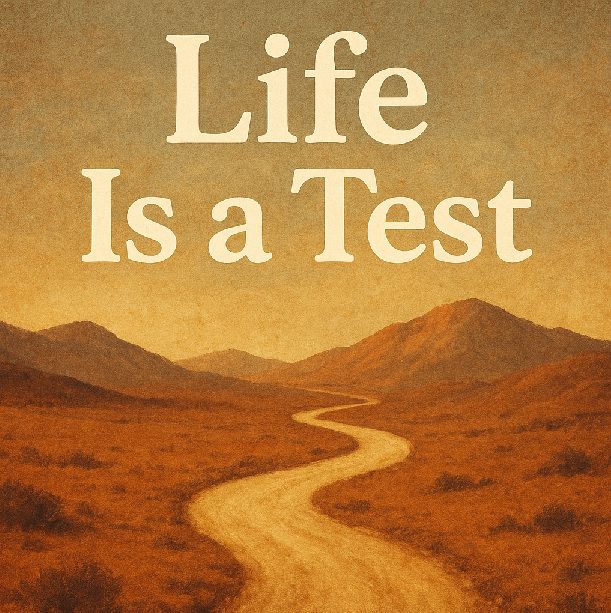Success Meaning: What King Solomon Knew That Most People Dont
If you ask search engines the meaning of success, you’ll get something bland like “the accomplishment of an aim or purpose.” Yawn. That’s like saying the definition of food is “something you eat.” Technically correct, but when you’re starving and debating between a fresh mango or a half-warm burger from last night, then food is food.

So what is life success, really? Is it the cars, the houses, the followers, the blue tick on social media? Or is it, as the motivational speakers shout, “becoming the best version of yourself”? (Which usually means buying their $499 self-help course).
Here’s the thing: humans have been wrestling with the meaning of success for centuries. And long before TED Talks, hustle culture, or LinkedIn gurus, there was a man who cracked the formula. His name? Solomon.
Yes, that Solomon — the ancient king with more wisdom than ChatGPT, more wealth than Elon Musk, and more wives than anyone should attempt in a lifetime.
If anyone understood the keys to life success, it was him. And funny enough, his story looks a lot like the equation modern people are still trying to scribble on whiteboards today.
The Formula Behind True Success Meaning
Let’s stop pretending life success is one-size-fits-all. It’s not. What works for Oprah might not work for you, unless you also have billions and the power to make people cry on TV. But here’s a universal framework — call it a formula — that actually fits across cultures and centuries.
Success = (B + A + D + R + P + H + M + E + S) ÷ X
Stay with me. It’s not as scary as it looks. Let’s break it down.
B = Generational Baggage → Recognize & Reprogram
Your starting point is never blank. Family patterns, cultural norms, and personal history shape your mindset. Maybe you grew up in scarcity, or maybe entitlement was the default. Recognizing inherited obstacles and reprogram behaviors that limit you is the first step, like a faulty prayer cycle. Tip: you have to go for therapy, journaling, or mentorship to help you break destructive cycles.
Solomon inherited a kingdom, but also family drama: David, his father, had a history of adultery, political intrigue, and rebellion within the palace. Instead of repeating all the same mistakes, Solomon mitigated these challenges by prioritizing justice and wise governance. He established courts, codified laws, and stabilized the kingdom — turning inherited chaos into opportunity.
A = Awareness → Know Yourself Deeply
Understand your strengths, weaknesses, and even natural tendencies. Self-awareness in 2025 includes knowing your digital habits, emotional triggers, and career fit. Awareness lets you work with reality — not fight it. For example, if you thrive in collaborative settings, don’t force yourself into isolation.
Solomon knew his limits: when God asked what he wanted, he admitted, “I am only a child; I don’t know how to rule.” This self-awareness allowed him to ask for wisdom instead of wealth or long life, acknowledging both his strengths and weaknesses. Awareness guided his decisions and alliances.
D = Direction → Define Your Purpose
Your “why” determines how every decision lands. Do you want financial independence, meaningful work, creative impact, or community influence? Like Solomon, clarity matters: vague “I want success” goals lead to wandering, while specific objectives guide effort, relationships, and choices.
Solomon’s purpose was clear: rule wisely and bring prosperity to Israel. He built the Temple, strengthened trade networks, and codified wisdom in Proverbs. His direction wasn’t vague ambition; it was a mission aligned with spiritual and national priorities. Without a clear purpose, effort and resources can easily scatter.
R = Relationships → Build Your Net Worth
Connections still matter. Network strategically: mentors, collaborators, supportive friends, and trustworthy partners amplify your progress. Recognize toxic relationships that drain energy or influence your decisions negatively.
Solomon managed alliances carefully: he maintained trade partnerships, diplomatic relationships, and internal court stability. He also welcomed foreign dignitaries like the Queen of Sheba, enhancing Israel’s influence. Strong relationships amplified his success, while toxic or poorly managed connections could have undermined him.
P = Parenting / Legacy building → Shape the Future
Legacy isn’t only for kings. What values, habits, or knowledge are you passing to the next generation? Parenting, mentorship, or even content creation can create ripple effects long after your personal efforts end.
Though Solomon’s empire thrived, he later struggled with succession. His son Rehoboam’s choices eventually led to division. Nevertheless, Solomon laid the foundation of a lasting cultural and spiritual legacy through the Temple, Proverbs, and governance structures — demonstrating intentionality in legacy-building.
H = Health → Protect Your Engine
Physical and mental well-being are non-negotiable. Modern distractions — screen time, sedentary work, processed diets, burnout — threaten your “engine.” Exercise, nutrition, meditation, and sleep are investments in sustainable success.
Solomon prioritized physical and mental well-being to lead effectively. While the Bible doesn’t list his exact routines, his longevity and ability to manage a vast empire suggest discipline, moderation, and strategic rest. Health enabled him to execute all other parts of the formula.
M = Macro-awareness → Seeing the Big Picture
Understanding global trends, politics, economics, and technology. Awareness of your environment allows smart decisions — whether it’s investing, career pivots, or timing a launch. Think of it as strategic foresight in a complex, hyperconnected world.
Solomon was strategic in economics and politics: he controlled copper mines, managed shipping routes, and leveraged international diplomacy. Understanding the bigger picture allowed him to make decisions that ensured prosperity and stability for Israel.
E = Effort → Consistent Action Wins
Ideas are worthless without execution. Showing up, doing the work, and iterating daily is what converts potential into results. Effort compounded over time beats raw talent alone.
Wisdom alone was not enough; Solomon executed it. He built the Temple, administered justice, and organized a kingdom. Daily effort turned insight into tangible achievements.
S = Spirituality / Wisdom → Anchor Everything
The crown jewel of the formula. When asked what he wanted, Solomon chose wisdom, not gold, power, or fame. And as you know “The fear of the Lord is the beginning of wisdom” (Proverbs 9:10). Spirituality provided clarity, discernment, and perspective — it made all other factors work effectively. Without S, awareness, direction, relationships, and effort can easily misfire.
So this is your multiplier. Spiritual wisdom is not only religious; it’s knowing how your actions affect yourself, others, and the world. Begin with ethical discernment, understanding cause and effect, and seeking insight beyond material gain. Like Solomon, aligning choices with a higher perspective prevents common traps: chasing wealth at the expense of health, relationships, or purpose.
X = Distractions → Filter the Noise
Distractions are everywhere: social media, gossip, instant gratification, toxic environments. Identify your “X” factors and reduce them. Focus, routines, digital boundaries, and mindfulness are modern tools to manage distractions effectively.
Even Solomon had distractions: his many wives and indulgences later created challenges. In modern life, distractions include social media, addictive behaviors, or trivial pursuits. Recognizing and mitigating these X factors preserves progress.
How It Works in Practice
Let’s put it in a scenario:
- You want to launch a business (Direction).
- You understand your strengths: creativity and sales, but struggle with consistency (Awareness).
- You build a network of reliable partners and mentors (Relationships).
- You structure your schedule to include family time and mentorship (Parenting/Legacy).
- You maintain exercise, diet, and mental rest (Health).
- You monitor market trends and competitors (Macro-awareness).
- You commit to consistent, daily work (Effort).
- You anchor decisions in ethics, long-term vision, and spiritual wisdom (Spirituality/Wisdom).
- You block out distractions: limit scrolling, say no to unhelpful engagements (Distractions). Result? Sustainable, meaningful success — not temporary applause or superficial metrics.
So if you want the real definition of success, it’s this: progress toward a purpose while managing distractions. That’s it.
Solomon’s Story = Our Story
Here’s the irony. Solomon reached heights we still drool over: unimaginable wealth, fame, power, wisdom. He had what most people today call examples of success. And yet, in his own memoir (a.k.a. Ecclesiastes), he calls it all “meaningless, meaningless, vanity.”
Why? Because success without a spiritual anchor is just noise. It feels great for a while — the new house, the applause, the Instagram likes — but eventually, the shine fades. That’s the paradox: we’re obsessed with what success means, but even the man who literally had it all concluded that without God, it was dust.
The Modern Mess: Success in 2025
Fast forward to today. People define success in weird ways:
- A YouTuber with 5 million followers but can’t sleep at night.
- A CEO with three Teslas but no one to eat dinner with.
- An influencer who preaches self-love but quietly edits their selfies for three hours.
Are these real success stories? Or are they just shiny distractions — Solomon 2.0 but with better Wi-Fi? Truth is, many of us are running Solomon’s formula backward: effort without direction, relationships without loyalty, awareness without honesty, and distractions multiplied by infinity. We’re burning energy but missing meaning.
So What Is Success, Really?
If you strip away the hype, the true meaning of success is simple:
- It’s knowing who you are (awareness).
- It’s moving with purpose (direction).
- It’s building something bigger than yourself (legacy).
- It’s managing the noise (distractions).
- And it’s realizing, like Solomon, that without God in the equation, all your formulas equal zero.
In short: success is not what you collect. It’s what you become.
Takeaway: Learning from Solomon
When you hear motivational gurus shout about “10 keys to success,” remember that Solomon already lived the whole playbook. He nailed it. He broke it. Then he left us with the ultimate conclusion:
“Fear God and keep His commandments, for this is the whole duty of man.” (Ecclesiastes 12:13)
That’s not religious guilt-tripping. That’s Solomon’s mic drop. Success meaning, redefined: align your purpose with the Creator, and everything else finds its place.
Final Word
So, if you’re chasing true success meaning, stop looking for magic hacks. Run the formula. Manage your distractions. Build with awareness and direction. And above all, don’t make Solomon’s mistake — reaching the top only to realize the ladder was leaning on the wrong wall. Because at the end of the day, success isn’t the car, the house, or the followers. Success is peace, purpose, and alignment with the Source. That’s the definition of success meaning worth living for as the source knows what’s truly right for you at what time.







